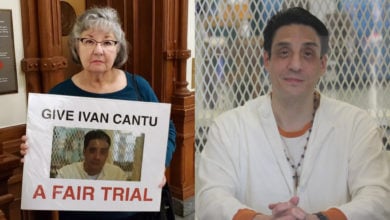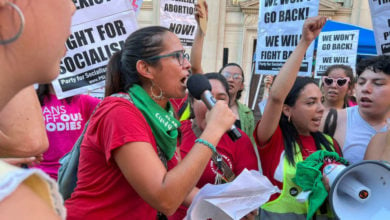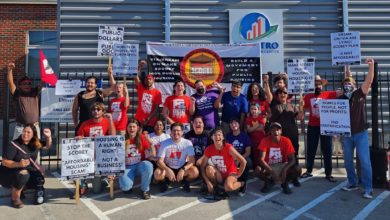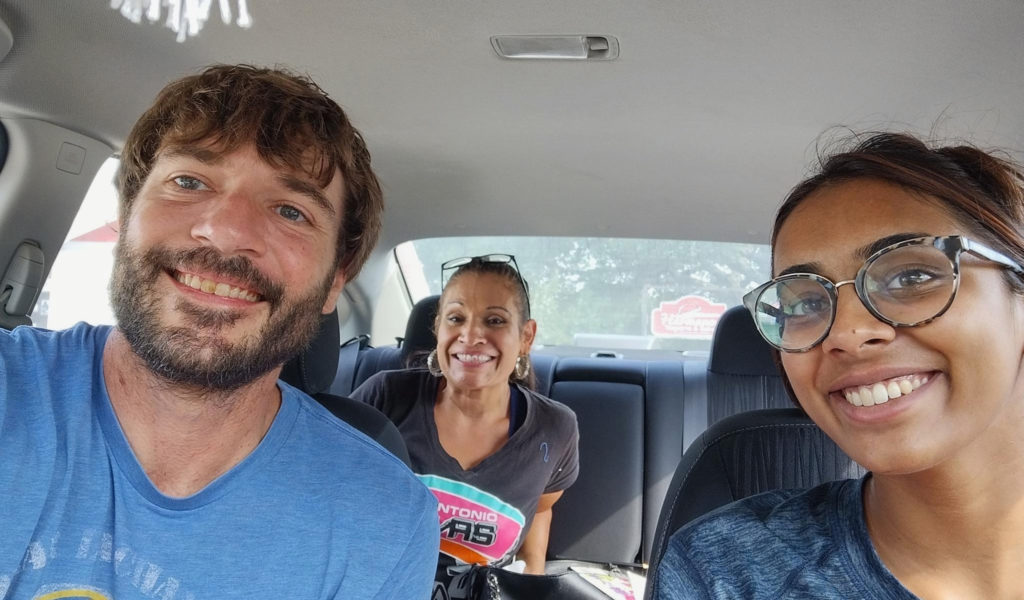
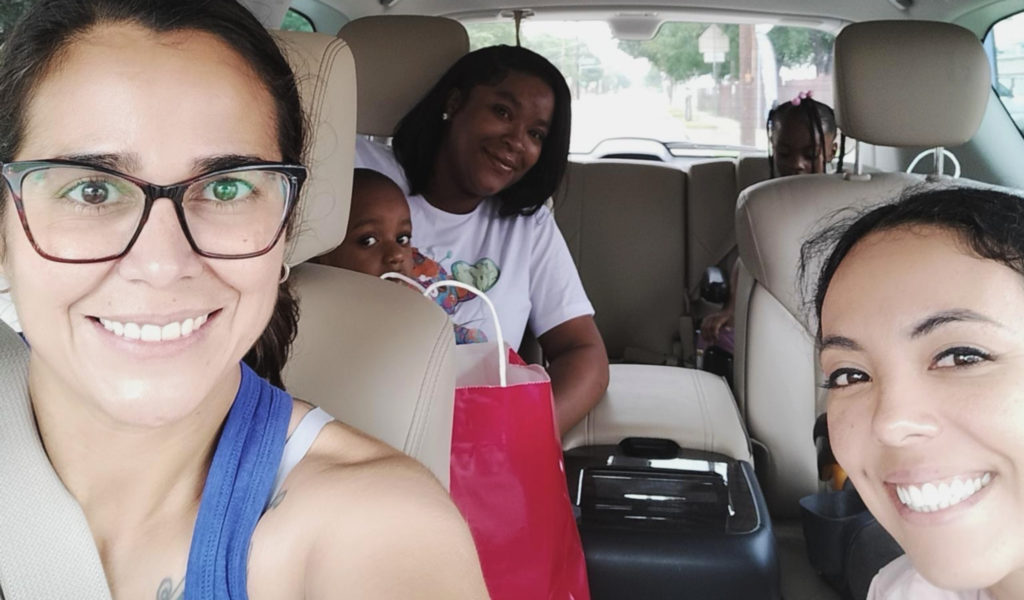
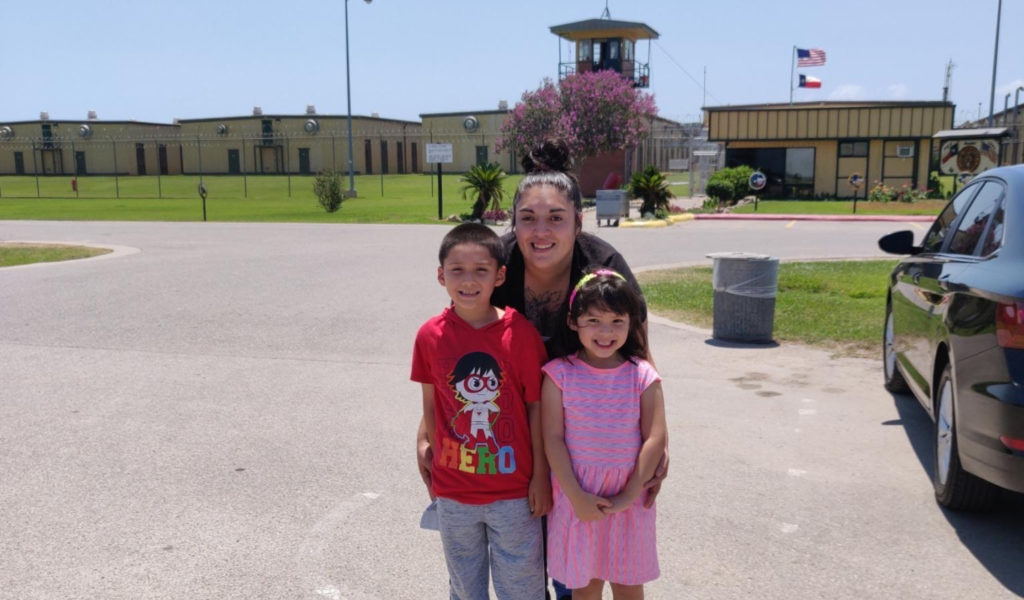
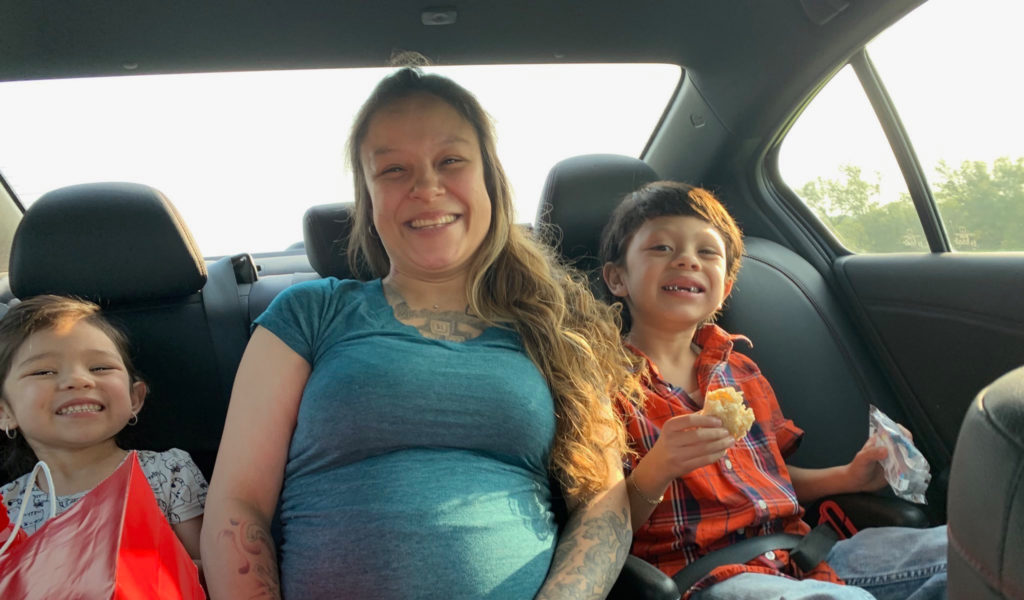
On Father’s Day, June 18, organizers from the San Antonio branch of the Party for Socialism and Liberation organized a transportation program to bring families to six different prison facilities across the state of Texas where their loved ones were incarcerated.
Prisons are often located in remote areas, separating incarcerated people from their communities and families by walls, prison bureaucracy and sheer distance. The Father’s Day prison transportation program helped families cross these cruel barriers.
In the month leading up to Father’s Day weekend, organizers distributed over 1,000 door hangers and raised almost $2,000 to cover transportation costs.
The organizers met with families to determine how many people were going, what prison they needed transportation to, how to set up a visit with the prison, and how much it was going to cost to make it happen. There was no one-size-fits-all approach to the program, but the process of engaging with families to suit their needs was part of the experience.
Many of the families’ loved ones were placed in prisons that are far away from where they live. The trips ranged from one to four hours by car. For poor and working people, taking time off of work, finding reliable transportation, and spending the money to make this journey can be an impossible task.
Even if a family is able to make the expensive trip to see their loved one, there is no guarantee that prison officials will let them enter. One of the families broke down in tears after being transported nearly two hours just to be turned away by the prison. A different prison attempted to turn away a second family, but due to the dedication and advocacy of the organizers, the prison was pressured to grant the visit.
There were also families that signed up for the program that were unable to be helped due to the ongoing cruelty of the system. In one instance, a relative was detained in an ICE facility, which has denied visitation rights to inmates for years without any explanation. Another family needed transportation to visit a loved one in a prison in Oklahoma, but the facility claimed that it needed six months to conduct a background check on a mother visiting her son.
One of the participants, Jolynn Santoya, described the difficulty of making that visit as a struggle: “You know, there’s times I don’t have money to go see him but I have a ride, or I don’t have a ride but I have money.” Santoya continued, “I feel hopeless at times ‘cause I have no money or a way to see him.”
Two years had passed since Santoya had last seen her son, and since her granddaughter had seen her father. Santoya expressed her gratitude to the program and everyone who made it possible for her to see her son again.
Catelynn Chapa, another participant who was reunited with family, said, “I know plenty of people who have loved ones incarcerated and who aren’t able to get to them … [T]he system is very messed up, and I don’t think it’s okay the way they do things with the inmates.” Chapa went on to denounce the conditions in the prison, such as the lack of air conditioning and the poor quality of the meals.
Participant Rosalinda Peña said that due to the three-hour drive, her family had not seen her father in thirteen years. They had only been able to have video visits during that time. Peña expressed disappointment in an unfair prison system that keeps her father away from his kids and grandkids. They said that they wished they had more time and that, “It’s not fair to none of us having to drive three or four hours out of our way just to get a two-hour visit.”
The United States leads the world in the number of incarcerated people. This system of mass incarceration is a defining feature of American capitalism. One one hand, political prisoners, such as Mumia Abu-Jamal and Leonard Peltier, continue to be held in decades of confinement for speaking out against injustice. On the other, many of the nearly two million incarcerated people, alienated from their families and society for decades on end, can be said to constitute another category of “political prisoners”: casualties of a political system of exploitation and oppression whose only “solution” to every problem is to lock more people in more cages.
The prison transportation program started small, but San Antonio organizers now have the experience and knowledge to expand it in the years to come. Many of the families expressed excitement about the potential for this project to grow as the word gets out and more resources can be raised.
Mass incarceration affects millions of people’s daily lives. It is not enough just to alleviate the harm, a fact that the organizers recognized. With the Father’s Day transportation project, organizers were able to face the injustice and hardship that the system places on families, offering both a chance for families to see their loved ones and to demand that this oppressive institution be abolished.



